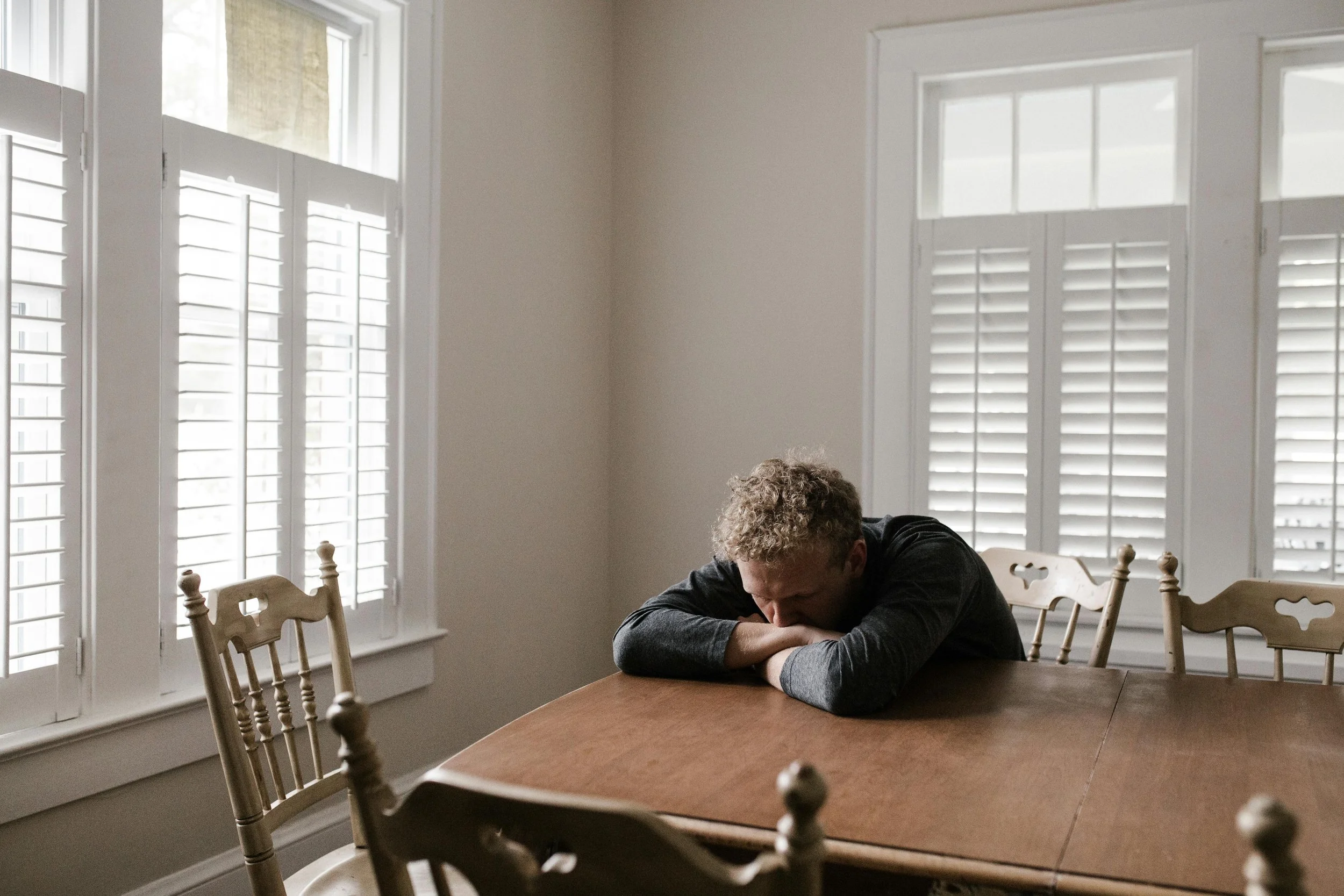The Healing Blog
Imagine if Ryan Holiday, Mel Robbins, Andrew Huberman, and C.S. Lewis sat down at the same table to talk about life. Each brings a different lens—Stoic philosophy, practical psychology, neuroscience, and timeless spirituality.
This blog is built like that conversation: not about proving who’s right or wrong, but about exploring how different perspectives can complement each other. From resilience and discipline, to courage and faith, to mental health and everyday habits—these voices together remind us that healing is never one-dimensional.
Here, you’ll find reflections that weave together mind, body, and spirit, helping us navigate the challenges of being human with clarity, hope, and grounded strength.
You Have to Feel It to Be Free: Why Avoided Emotions Always Return
This reflection explores why healing requires feeling — and how unprocessed emotions often return when they’re pushed aside. It unpacks the difference between pausing emotions with care and suppressing them in hopes they’ll disappear. Because what you resist, persists — and what you allow yourself to feel can finally move through you.
When There’s No Clear Answer: Understanding Ambiguity as a Choice
This reflection explores the quiet truth that ambiguity is often an answer — one rooted in avoidance rather than uncertainty. It unpacks how unclear communication, mixed signals, and prolonged “maybes” can cost us peace, self-trust, and emotional safety. Because clarity is not too much to ask for — and choosing yourself is sometimes the clearest response of all.
The Last Day of 2025: What You’re Allowed to Leave Behind
As 2025 comes to a close, this reflection invites you to gently release the patterns, roles, and relationships that no longer align — and to carry forward only what feels true, grounding, and life-giving. Because entering a new year isn’t about becoming someone new, but about letting go of what was never meant to stay.
Choosing Peace Over Performance This Christmas
This reflection invites you to release the pressure to perform joy this season and instead choose peace that feels honest and sustainable. It explores how to honour the holidays, your relationships, and yourself — without overextending, people-pleasing, or disappearing in the process. Because Christmas was never meant to cost you your peace.
Sunk Cost Fallacy: Letting Go of What’s No Longer Yours to Carry
There comes a point where holding on stops feeling loyal and starts feeling heavy. This blog explores the sunk cost fallacy — the quiet belief that you must keep investing in something just because you’ve already given so much. It’s a reflection on why we stay in relationships, jobs, dreams, and identities long after they’ve stopped aligning, and how releasing them can open room for clarity, renewal, and growth. Because your future shouldn’t be determined by what you’re afraid to let go of.
Loyalty in Two Worlds: Honouring Filipino Family Values Without Losing Yourself
Explore what it means to stay loyal to your Filipino roots while also learning to be loyal to yourself. This reflection dives into the tension many of us feel growing up between cultures — carrying family expectations, honouring heritage, and still choosing a life that aligns with who we’re becoming. Because you can honour where you come from without losing who you are.
Impact Bias: The Lie That Says “You’ll Feel This Way Forever”
Some feelings arrive so loudly that they convince us they’ll never leave. This blog unpacks impact bias — the belief that our current emotional state will last forever — and how it shapes fear, panic, and hopelessness. It’s a reminder that intensity isn’t permanence, and that every feeling has a lifespan. Because what feels endless today will soften, shift, and eventually pass.
Judge Yourself on the Decision, Not the Outcome
There’s a moment after disappointment where we don’t just question what happened — we question ourselves. This blog explores why we blame our decisions for outcomes we never controlled, and how outcome bias quietly erodes self-trust. It’s an invitation to honour the courage it took to choose, even when the result didn’t match the hope. Because your worth is measured by your intention — not the ending.
The Debt of Saying Yes When You Don’t Want To
There comes a point where saying yes to avoid conflict stops feeling kind and starts feeling costly. This blog explores how emotional debt builds when we agree to things we never wanted — and how reclaiming our boundaries can restore peace, integrity, and alignment. Because you were never meant to carry what wasn’t yours.
The Invisible Phase of Healing
We talk a lot about breakthroughs, clarity, and “leveling up” — but not about the quiet phase in between, when nothing in your life looks different yet you’re still doing the work. This blog explores the invisible part of healing: the slow identity shift that happens long before the external world reflects it back. Faith, Stoicism, and psychology all remind us that transformation is often internal before it becomes visible — and just because you can’t see the change yet doesn’t mean it isn’t happening. The roots grow before the bloom.
When “Just Think Positive” Isn’t Enough
There are moments when “just think positive” isn’t enough — not because mindset is useless, but because real change requires more than forced optimism. Faith, Stoicism, and psychology each remind us that manifestation isn’t about ignoring discomfort, but integrating it. True alignment happens when belief, emotion, and action match — not when we try to out-think what we haven’t yet embodied. The work isn’t to fake confidence, but to become the kind of person who no longer needs to.
The Weight of Suffering
There are seasons in life when suffering doesn’t look loud or dramatic — it looks quiet, invisible, and carried alone. This reflection explores how faith, Stoic wisdom, and psychology each offer a different way of understanding pain, not as something to suppress or rush through, but as something that can shape resilience, depth, and hope. Suffering may not be chosen, but it can become meaningful when it is no longer held in silence.
It Started There, But It Doesn’t Have to End There
There comes a point in healing when awareness is no longer enough — when understanding our past must turn into choosing differently. This reflection explores how compassion and accountability can coexist, allowing us to honor where we came from without staying defined by it. Because while it may not have started with us, it can be transformed through us.
Your Thoughts Are Not Your Story
In moments when our minds spiral into doubt or self-criticism, it’s easy to mistake our thoughts for truth. This reflection explores how to separate who we are from what we think — drawing from Stoic philosophy, scripture, and mental-health practices that teach awareness and self-compassion.
Your Triggers are Healers
Triggers aren’t signs of weakness — they’re invitations to healing. Through faith, Stoic wisdom, and psychology, this reflection explores how moments of discomfort can reveal what’s ready to be transformed. Each trigger becomes a doorway through which grace enters — revealing what we’ve outgrown and what’s asking to be restored. Healing begins the moment we choose curiosity over self-criticism.
When Others Tell Your Story
In moments when we feel misrepresented or misunderstood, it can be easy to lose confidence or withdraw. This blog explores how staying rooted in truth can guide us through these challenges, drawing from scripture, Stoic philosophy, and mental health practices. It offers reflections on patience, peace, and rebuilding self-esteem — reminding us that our worth is not defined by others’ opinions.
The Courage to Be Yourself
Have you ever felt stuck in a place, relationship, or environment, knowing deep down it was time to move on? This post reflects on Joshua 1:9, Stoic wisdom, and the mental health practices that remind us courage isn’t about being fearless—it’s about setting boundaries, reclaiming your peace, and taking the next step forward.

















